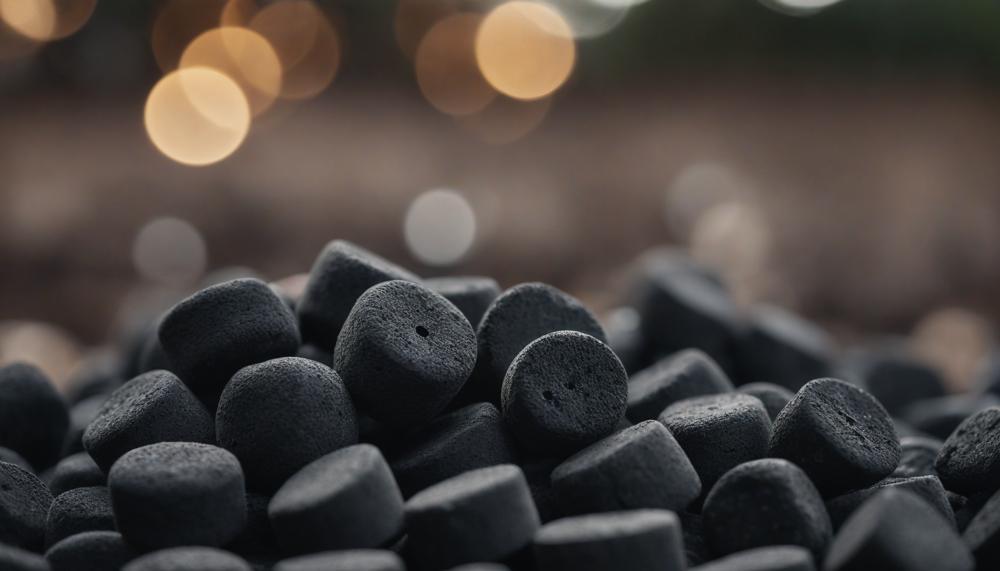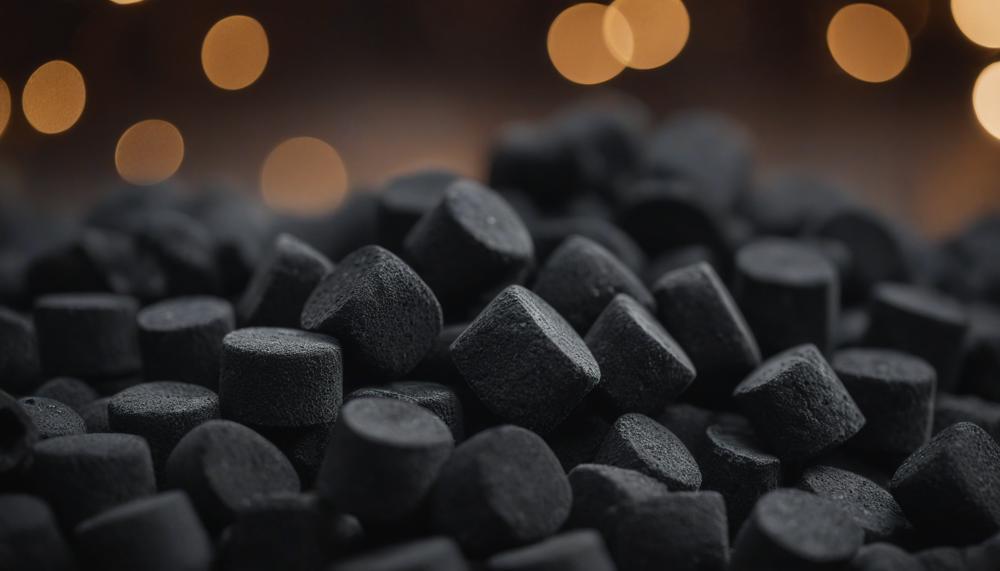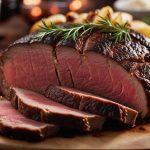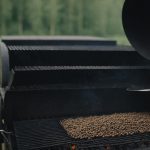Ever wondered how long charcoal briquettes last? The simple answer: as long as they stay dry. Unlike perishable goods, charcoal briquettes, made from a mix of wood, sawdust, and additives, can maintain their usability indefinitely when stored properly.
However, their shelf life hinges on one critical factor—moisture. Excessive dampness can compromise their shape and quality, rendering them less effective for grilling. To help you grasp the essentials quickly, let’s dive into the key takeaways:
- Charcoal briquettes have an indefinite shelf life under dry conditions.
- Moisture absorption can impact their performance over time.
- Proper storage is crucial for maximizing their longevity.
Join us as we uncover more tips and insights on how to get the most out of your charcoal briquettes, ensuring your next barbecue is a sizzling success.
Contents
BBQ Cocktails: 12 Awesome Drinks to Serve at Your Next Barbecue
When it comes to hosting a summer BBQ gathering, serving up delicious cocktails that perfectly complement your barbecue dishes is key. Here are some creative and refreshing cocktail options that will elevate your summer soirée:
| Cocktail | Description |
| Mojito | A minty-cool marvel made with Wray and Nephew Overproof white rum, lime juice, soda water, sugar, and freshly muddled mint; perfect for hot summer days. |
| Tequila Sunrise | A zesty citrus cocktail with grenadine that is both refreshing and visually appealing. |
| Summer Spritzes | Light and bubbly drinks that complement BBQ dishes beautifully. |
| Sangria | A versatile Spanish drink featuring red wine, water, herbs, spices, and fruit; modern variations may include soda and brandy for added flair. |
These cocktails offer a blend of flavours that pair excellently with the smoky and spicy notes of your barbecue dishes. From the classic Mojito to the vibrant Tequila Sunrise, these drinks are sure to impress your guests with their refreshing and complementary profiles.
The Best Pellet Grills for the Money
When seeking the best pellet grills for the money, consider these key factors to make an informed choice:
- Performance: Look for a grill that offers consistent heat distribution and efficient cooking to ensure your dishes are perfectly cooked every time.
- Assembly: Opt for a grill that is easy to assemble, saving you time and frustration before you can start grilling.
- Controls: Choose a grill with intuitive controls that are user-friendly, allowing you to adjust settings effortlessly for precise cooking.
- Cleaning: Consider the ease of cleaning the grill, as this can impact maintenance and longevity of the appliance.

| Price Range: | From $400 to $3,300 |
| Outdoor Space: | Choose a grill that fits your outdoor area |
| Temperature Range: | Opt for higher temperature ranges for enhanced grilling capabilities |
| Versatility: | Pellet grills can double as smokers and traditional grills |
What Is The Difference Between a Grill and a Smoker?
The key difference between a grill and a smoker lies in their cooking methods and purposes. Here’s a detailed comparison:
| Aspect | Grill | Smoker |
| Type of Food | Grilling is versatile and can include meats, vegetables, fruits, and other foods. | Smoking is primarily for meats, fish, and poultry. |
| Cooking Temperature | Uses high heat (typically 300°F to 500°F) for fast cooking. | Employs low heat (usually 225°F to 275°F) for slow cooking. |
| Heat Source | Relies on direct heat from gas, charcoal, or electric sources. | Uses indirect heat, often from wood chips or chunks, to produce smoke. |
| Cooking Times | Grilling is quick, often taking minutes to an hour. | Smoking is a lengthy process, ranging from several hours to an entire day. |
| Cooking Style | Food is cooked by radiant heat directly from the heat source. | Food is cooked and flavoured by the smoke from smouldering wood. |
Grilling involves high temperatures and direct heat, making it perfect for quick meals like burgers and steaks. Smoking, on the other hand, is a slow process using lower temperatures and indirect heat to infuse deep, smoky flavours into meats over several hours.
10 Expert Tips for Smoking Meat
| Choose the Right Wood Select hardwoods like hickory, oak, or fruitwoods such as apple or cherry. Avoid softwoods like pine or cedar, which can impart bitter flavors. |
Maintain Consistent Temperature Use a quality smoker with precise temperature control. Monitor temperatures closely to ensure even cooking and smoke distribution. |
Prep and Season Generously Trim excess fat and apply a dry rub or marinade to enhance flavor. Let seasoned meat rest before smoking to allow flavors to penetrate. |
| Control Airflow Adjust vents based on altitude and weather conditions to regulate airflow and maintain steady smoke production. |
Monitor Internal Temperature Use a meat thermometer to check doneness. For optimal texture and taste, aim for temperatures that vary by meat type. |
Practice Patience Smoking is a slow cooking process. Avoid opening the smoker unnecessarily to retain heat and smoke. |
| Consider the Smoke Flavor Experiment with different wood varieties and combinations to achieve desired smokiness levels and flavor profiles. |
Enhance Moisture and Flavor Baste meat with a mop sauce or spray during smoking to keep it moist and infuse additional flavors. |
Add Finishing Touches Brush on glazes, sprinkle fresh herbs, or squeeze citrus juice onto finished meat to elevate taste and presentation. |
| 10. Rest Before Serving Allow smoked meat to rest after cooking to redistribute juices. Tent with foil for 10-15 minutes before slicing and serving. |
These tips ensure your journey into smoking meat results in succulent dishes bursting with flavor. Remember, mastering the art of smoking meat takes practice and attention to detail, but the reward of tender, smoky goodness is well worth the effort. Happy smoking.
5 BBQ Recipes for Kids They’ll Love
| Recipe | Ingredients | Instructions |
| Cheesy Grilled Quesadillas | Cheese, Tortillas, Diced Veggies (optional) | Sprinkle cheese and veggies on a tortilla. Top with another tortilla. Grill until cheese melts. |
| Pineapple Chicken Skewers | Chicken, Pineapple Chunks, BBQ Sauce | Thread chicken and pineapple onto skewers. Brush with BBQ sauce. Grill until chicken is cooked through. |
| Corn on the Cob Lollipops | Corn on the Cob, Butter, Salt | Insert a stick into each corn cob. Brush with butter and sprinkle salt. Grill until tender. |
| Banana S’mores | Bananas, Marshmallows, Chocolate Chips | Slice bananas and fill with marshmallows and chocolate chips. Wrap in foil. Grill until gooey. |
| BBQ Fish Tacos | Fish Fillets, Taco Shells, Coleslaw Mix | Grill fish fillets until flaky. Fill taco shells with fish and coleslaw mix. |
The 7 Best Online Cooking Classes for Home Cooks
When selecting the best online cooking class for home cooks, it’s essential to consider several key factors to ensure an enriching and rewarding learning experience. Here are the crucial aspects to keep in mind:
- Variety of Formats: Look for classes that offer a variety of formats such as live classes for direct interaction with instructors and prerecorded classes for flexibility in pacing.
- Community and Spontaneity: Seek classes that foster a sense of community and spontaneity, contributing to an engaging and enjoyable learning atmosphere.
- Level of Engagement: Evaluate the level of engagement and interaction offered during the class, ensuring it aligns with your preferred style of learning.
- Preparation Guidance: Check if the class provides a list of required ingredients and equipment in advance, enabling you to prepare adequately for the session.
- Catering to Specific Interests: Explore options that cater to your specific interests, whether it’s cuisine types, skill levels, or age groups, ensuring the content aligns with your preferences and needs.
- Reputation and Recommendations: Read reviews and seek recommendations from other home cooks or industry professionals to identify reputable and effective online cooking classes.
Conclusion
As you prepare for your next barbecue, understanding the longevity of charcoal briquettes can enhance your grilling experience.
Charcoal briquettes boast an indefinite shelf life when stored in dry conditions, meaning they’re ready to fire up your grill anytime, preserving their quality and efficiency. However, moisture is the archenemy of briquettes; exposure to dampness can deteriorate their structure and reduce their efficacy.
To ensure your briquettes are in prime condition, store them in a cool, dry place away from moisture. By following this simple yet effective storage practice, you secure an ever-ready supply of quality briquettes, making each barbecue session as thrilling as the flames you kindle.
Remember, the key to a successful grill is not just the technique or the recipes but also the quality of the charcoal used.






